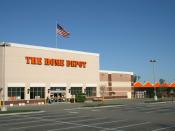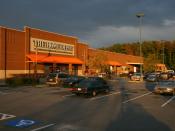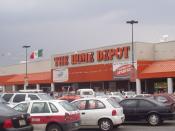Home Depot
Regardless of the industry, if something is produced it is more than likely desirable to individuals. Within any organization, there are steps that lead to success, including desire, investment, time and energy. This paper will review Home Depot with a brief history of the company and coverage of the strengths, weaknesses, threats, and trends (SWOTT), the real GDP, the unemployment rate, and the inflation rate as measured by CPI.
A review of six economic indicators that influence Home Depot will be discussed. This paper will describe the current status for each indicator along with a separate graph illustrating forecasted trends. Finally, an analysis on how the forecast will affect Home Depot with final recommendations and strategic initiatives.
History and Overview
Home Depot has been one of the leading suppliers of home building and garden supplies for over 20 years. Bernie Marcus and Arthur Blank founded the company, opening their first store in Atlanta, Georgia in 1979.
Their pioneering spirit envisioned warehouses that supplied buyers with an array of choices to meet their home improvement needs. This dream has blossomed into a vibrant industry that encompasses 2,005 stores in the United States, Canada, and Mexico. Home Depot is continuously expanding and on average, a new store opens every 48 hours.
SWOTT
A SWOTT analysis measures strengths, weaknesses, opportunities, threats, and trends. According to Marketline (2005), "Home Depot, Inc. is the world's largest home improvement retailer and the second largest retailer in the United States..." (Swott section, para. 1).
Home Depot's biggest strength is their ability to carry a wide range of name-brand products, which allows them to cater to three types of customer groups, which include do-it-yourself customers, homeowners who purchase materials and professional customers that include general contractors, and tradesman. A typical store stocks close to 40,000 products...


